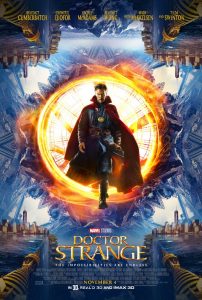 I know that Doctor Strange occasionally crosses over with other characters in the Marvel universe. I mean, maybe someday he’ll be at the heart of a big crossover event, but as of 15 years of Ultimate comics and 20 years of mainstream comics, he has only ever been at the fringes. And this is a thing that makes a lot of sense! Except for the artifact of history that Stan Lee decided to build a stable of shared characters in the early 1960s to compete with what DC had been doing, there’s no way anyone would say Strange fits into Marvel. Different genre than anything else they publish, and an entirely different style to boot. The only thing that comes close is Thor, and that’s only because they both share a love of stilted declamations.
I know that Doctor Strange occasionally crosses over with other characters in the Marvel universe. I mean, maybe someday he’ll be at the heart of a big crossover event, but as of 15 years of Ultimate comics and 20 years of mainstream comics, he has only ever been at the fringes. And this is a thing that makes a lot of sense! Except for the artifact of history that Stan Lee decided to build a stable of shared characters in the early 1960s to compete with what DC had been doing, there’s no way anyone would say Strange fits into Marvel. Different genre than anything else they publish, and an entirely different style to boot. The only thing that comes close is Thor, and that’s only because they both share a love of stilted declamations.
Do I have a point, here? Maybe. See, as promised in a blink and you missed it scene in The Winter Soldier, Marvel Studios has dropped a Doctor Strange film onto an unsuspecting[1] public. And sure enough, there is no apparent connection between it and any other movie they’ve made, at first glance[2]. But this is fine, because unlike some Netflix series I could name, Avengers Tower is prominent in the midtown skyline. Even better, both the characters with names and dialogue and the pedestrians in the background are becoming more comfortable with the bizarre turns of events that occur with increasing regularity in their world, just as befits a maturing familiarity with superheroes. I would not have thought to be so appreciative of a touch like that, but I don’t think I would have thought to expect such a touch in advance, and yet here we are. Normalcy. I dig it.
Anyway, all that’s about the world and setting. The actual movie, though? See, Stephen Strange is the best neurosurgeon in the world, but after a series of unfortunate events related (mostly) to his personality, he finds himself seeking alternative answers about his place in the world. It took Stan Lee and Steve Ditko maybe three pages to establish all of this before turning Strange from a doctor into a sorcerer, and it took the movie a good 45 minutes. Now, don’t get me wrong, Lee has never written under the auspices of “show, don’t tell”. Man loves to tell approximately as much (and as floridly) as PT Barnum did. But at the same time, 45 minutes is a lot of celluloid to squeeze out of three pages. Maybe there is some kind of middle ground? Like, I would never say they should have skipped the origin story entirely, because who has heard of Doctor Strange?
The good news is, that’s the only bad thing I have to say about the movie. It is a feast for the eyes, and moreso in 3D (unless that kind of thing makes you ill), and if the plot is a little bit bog-standard good v evil for modern Marvel, to be fair fantasy and spellcraft kind of lends itself to that. And even so, it’s far more nuanced than you might think from what I’ve said. Not-apparently-a-Baron Mordo in particular is fully realized in a way that never would have been predictable based on his turn in that same initial Lee/Ditko comic I mentioned before.
Tl;dr go see it, they’re not out of juice yet.
[1] I mean, if you discount years of announcements and months of previews. Look, nobody asked you.
[2] At second glance, this is completely untrue, but only because the writers made an effort to relevance that I cannot decide if I appreciate or oppose. That is in full on spoiler territory, however, so I shall say no more.
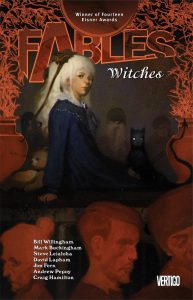 Moving: awesome for getting to live in a place you like better than the previous place you lived, but terrible for not falling way way behind on book series that you are reading. Case in point: The new Fables collection picks up right after they banded together to save all of creation that had been threatened by developments from the side series about Jack Horner, and that is not a record of what had actually been going on in the main continuity, which means they are resuming a plotline I last read about three years ago. Awesome.
Moving: awesome for getting to live in a place you like better than the previous place you lived, but terrible for not falling way way behind on book series that you are reading. Case in point: The new Fables collection picks up right after they banded together to save all of creation that had been threatened by developments from the side series about Jack Horner, and that is not a record of what had actually been going on in the main continuity, which means they are resuming a plotline I last read about three years ago. Awesome.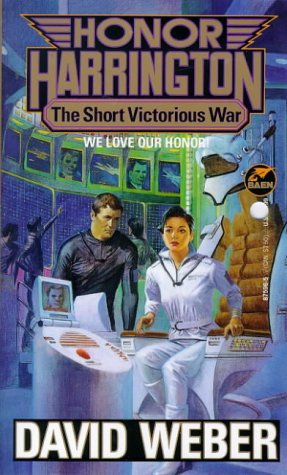 It’s been a while since I’ve
It’s been a while since I’ve 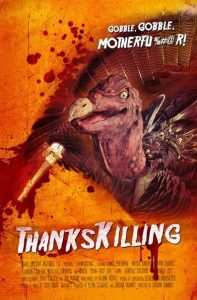 Off of a dare[1] on Wednesday night before Thanksgiving, I turned on
Off of a dare[1] on Wednesday night before Thanksgiving, I turned on 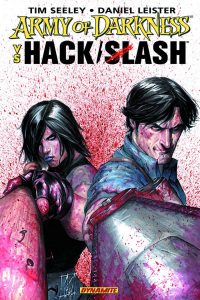 As of this writing, my new job and then the world’s pre-eminent boardgame convention have kept me too busy and/or access-blocked to do much in the way of reviewing. Well, no, that’s not right. As you can see, I’ve been reviewing, I just haven’t been posting them. The previous one, I think about a movie I saw a week or two ago, has been sitting in my inbox for days waiting for me to punch up the HTML and then post it. On the (let’s say) bright side, I haven’t had time to fall farther behind, so I’ve got that going for me at least.
As of this writing, my new job and then the world’s pre-eminent boardgame convention have kept me too busy and/or access-blocked to do much in the way of reviewing. Well, no, that’s not right. As you can see, I’ve been reviewing, I just haven’t been posting them. The previous one, I think about a movie I saw a week or two ago, has been sitting in my inbox for days waiting for me to punch up the HTML and then post it. On the (let’s say) bright side, I haven’t had time to fall farther behind, so I’ve got that going for me at least. I know that Doctor Strange occasionally crosses over with other characters in the Marvel universe. I mean, maybe someday he’ll be at the heart of a big crossover event, but as of 15 years of Ultimate comics and 20 years of mainstream comics, he has only ever been at the fringes. And this is a thing that makes a lot of sense! Except for the artifact of history that Stan Lee decided to build a stable of shared characters in the early 1960s to compete with what DC had been doing, there’s no way anyone would say Strange fits into Marvel. Different genre than anything else they publish, and an entirely different style to boot. The only thing that comes close is Thor, and that’s only because they both share a love of stilted declamations.
I know that Doctor Strange occasionally crosses over with other characters in the Marvel universe. I mean, maybe someday he’ll be at the heart of a big crossover event, but as of 15 years of Ultimate comics and 20 years of mainstream comics, he has only ever been at the fringes. And this is a thing that makes a lot of sense! Except for the artifact of history that Stan Lee decided to build a stable of shared characters in the early 1960s to compete with what DC had been doing, there’s no way anyone would say Strange fits into Marvel. Different genre than anything else they publish, and an entirely different style to boot. The only thing that comes close is Thor, and that’s only because they both share a love of stilted declamations.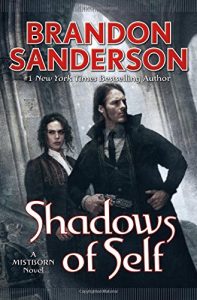 Back when I read
Back when I read 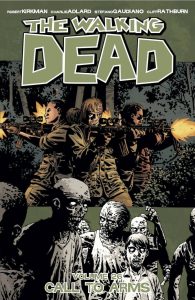 Despite myself, I’m continuing to like the way things are going with The Walking Dead. Choices of questionable morality are resulting in the fragile peace tumbling out of control, but of course the counter question is whether the peace was ever worth having in the first place. And, for that matter, would it have lasted?
Despite myself, I’m continuing to like the way things are going with The Walking Dead. Choices of questionable morality are resulting in the fragile peace tumbling out of control, but of course the counter question is whether the peace was ever worth having in the first place. And, for that matter, would it have lasted?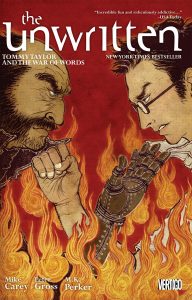 Thing the first: it is undeniable that I have not given this series the attention it deserves. Mike Carey gives
Thing the first: it is undeniable that I have not given this series the attention it deserves. Mike Carey gives 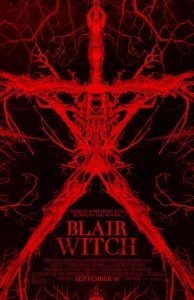 Did you know that
Did you know that 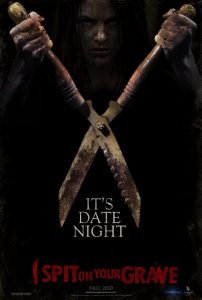 Many and more years ago, I saw a screening of the original
Many and more years ago, I saw a screening of the original